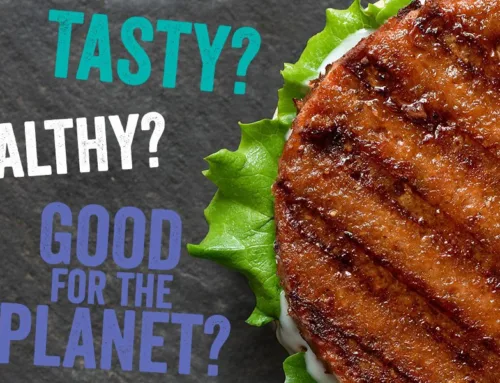Epogee News
The hard truth about plant-based meat innovation

Meat alternative. Vegan protein. Meatless meat. A plant-based burger by these and any other name has the same problem: sales have seriously decelerated in recent months—and consumer interest and loyalty are in question.
The reasons why are debated. Some food company executives blame a reduction in consumer willingness to try new products or waning interest in healthy foods in general. Analysts point to a shift in perception—in which consumers are questioning if plant-based meats are truly healthier and better for the planet. The higher price of plant-based meats could be another contributing factor. Almost certainly, taste and texture come into play. And while not all consumers expect or need plant-based meats to taste just like the real thing, expanded market share depends on appealing to the masses.
A brief history of innovation
Plant-based proteins have roots dating back to second-century China (tofu), but the history of modern-day meat analogs—those that attempt to mimic the real thing—is far shorter. Beyond Meat came onto the scene in 2009, and cemented the hype around plant-based meats with its record-breaking 2019 IPO.
But the early fever pitch around the company (and its rival Impossible) was a double-edged sword. Now, as consumer interest decelerates and sales fall, brands are wondering if there is still a gap between expectations and reality—as related to health, sustainability and taste. So what’s holding plant-based meat manufacturers back?
Expectation vs. reality
On the heels of Beyond Meat’s success, competition came in spades; but for the most part, other products on the shelf take a page from the same playbook: a mix of tried-and-true plant-based proteins, fats and starches that aim to mimic real meat. Big food, for its part, have been investing more heavily in plant-based meat products. And given all the initial hype, you can’t blame formulators for following in the footsteps of the most buzzed-about brands.
But now, experts believe plant-based meat consumers have entered the “trough of disillusionment”—the phase of the Gartner Hype Cycle in which “interest wanes as experiments and implementations fail to deliver.” This phase also marks a pivotal point for the product/technology in question, during which “producers of the technology shake out or fail. Investments continue only if the surviving providers improve their products to the satisfaction of early adopters.” Those that continue to innovate will succeed.
Removing the risk
As anyone in the industry knows, food/beverage R&D is expensive and time-consuming—so brands must have rock-solid reasoning for even the most minor formulation tweaks. In most cases, consumer concerns or demands force the hand of formulators to either change the makeup of existing products or develop new “next-generation” versions of them. It’s what’s happening in the plant-based meat space, but the path ahead can feel rocky and fraught with landmines.
Because so much time and money has been spent to “get it right” with the first generation of meat analogs, formulators might feel like they’ve exhausted all options. New ingredients or formulation technologies might seem too good to be true (because otherwise, why wouldn’t they be in use already by the well-funded superstars?). The truth is, we’re just scratching the surface of what’s possible.
Focus on the fat
For brands struggling to bring their plant-based meat products to the next level, the best course of action is to, first, focus on the fat. The biggest taste and texture complaints about meat analogs tie back to the lack of animal fat, which humans are wired to crave. With real meats—a beef burger, for instance—animal fat coats the mouth with every bite to achieve a juicy, full-flavored experience; most plant-based fat alternatives are either overly greasy (with a too-low melting point) or too dense/waxy (with a too-high melting point) to create the desired effect. But new ingredient technologies are cracking the code—helping to mimic the real-meat mouthfeel consumers know and love. And formulators are jumping on board, fast, with more nimble startups leading the way.
If brands hope to stand the test of time and reach the next phase of the hype cycle (the Slope of Enlightenment!) additional innovation is a must—and there’s no time to waste.
EPG is a groundbreaking alternative fat made from plant-based oil that dramatically improves the sensory attributes of plant-based meats while reducing total calories from fat.
Talk to an Epogee plant-based meat expert today about ways to bring your brand to the next level.
Share This Story, Choose Your Platform!
Recent Posts
EPOGEE Appoints Ron Savelli President and CEO
INDIANAPOLIS (February 2, 2023) - Food technology company Epogee® LLC, maker of EPG—the category-defining ingredient that eliminates most calories from [...]
Plant-Based Fat Alternative EPG Featured at Supply Side West 2022
INDIANAPOLIS, IN, (October 20, 2022) —Epogee® LLC, maker of EPG—the category-defining ingredient that eliminates most calories from fat— announces its [...]
EPOGEE LLC at Food & Nutrition Conference & Expo™
INDIANAPOLIS, IN, October 4, 2022—Epogee® LLC, maker of EPG—the category-defining ingredient that eliminates most calories from fat—is showcasing delicious and [...]



